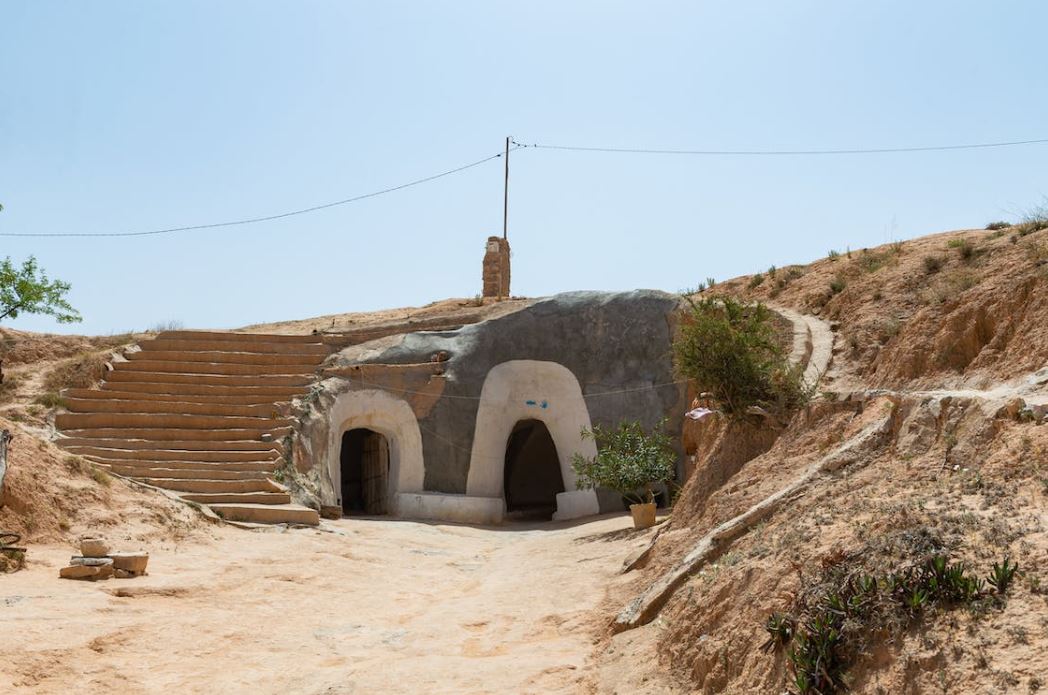10 Fun Facts about Tunisia |

|
|
Photo by: Son Tung Tran |
|
Tunisia is a North African country located on the Mediterranean coast, known for its rich history, diverse landscapes, and friendly people. We spoke a little bit about Tunisia on our podcast. Check it out below. Here are 10 fun facts that you may not have known about this fascinating country. 1. Tunisia was once part of the Roman EmpireTunisia was a province of the Roman Empire, known as Africa Proconsularis, and was one of the most important and prosperous regions of the empire. The Romans built magnificent cities and structures throughout Tunisia, including the famous amphitheater in El Djem and the ancient city of Carthage, which was the center of the Punic civilization. 2. Tunisia is home to the oldest synagogue in AfricaThe Ghriba Synagogue on the island of Djerba is considered to be the oldest synagogue in Africa, and is an important site for Jewish pilgrims. It is believed to have been built over 2,500 years ago and has been continuously used as a place of worship for Jewish communities in Tunisia. 3. Tunisia is a world leader in the production of phosphatesTunisia is one of the largest producers of phosphates in the world, and the industry plays a major role in the country's economy. Phosphates are used in a wide range of products, from fertilizers to detergents, and Tunisia's abundant reserves make it an important supplier to many countries. 4. The flag of Tunisia has a special significanceThe flag of Tunisia is red with a white circle in the center, which is meant to symbolize the sun and the purity of Tunisia's aspirations. The red represents the blood of those who fought for the country's independence, while the white circle symbolizes the bright future that awaits Tunisia. 5. Tunisia is a popular tourist destinationTunisia is a popular tourist destination, attracting millions of visitors each year with its sunny beaches, rich history, and cultural heritage. The country is known for its beautiful landscapes, including the Sahara Desert and the Atlas Mountains, as well as its bustling cities, such as the capital Tunis and the historic city of Sousse. 6. Tunisia has a thriving film industryTunisia is home to a thriving film industry, producing a number of popular and award-winning films each year. The country has a long history of filmmaking, and its film studios and facilities are among the best in Africa. 7. Tunisia has a rich culinary traditionTunisian cuisine is known for its rich and flavorful dishes, made with fresh ingredients and a blend of spices. The country's cuisine is a reflection of its diverse history and cultural heritage, and includes a mix of African, Arab, and Mediterranean flavors. 8. Tunisia is a leading producer of olive oilTunisia is one of the largest producers of olive oil in the world, and the industry is an important part of the country's economy. The country's fertile land and favorable climate make it an ideal place for growing olives, and Tunisian olive oil is considered to be among the best in the world. 9. Tunisia has a rich cultural heritageTunisia is a country with a rich cultural heritage, with a history that dates back thousands of years. The country is home to a number of important cultural sites, including the ancient city of Carthage, the ruins of the Roman city of Dougga, and the beautiful medina of Tunis. 10. Tunisia is known for its friendly peopleTunisians are known for their warm and friendly hospitality, and visitors to the country are often struck by the kindness and generosity of the local people. Whether you are exploring the country's historic sites, trying local cuisine, or just relaxing on the beach, you are sure to feel welcomed and at home in Tunisia. Wrap-Up: Fun Facts about TunisiaTunisia is a country with a rich history, diverse culture, and friendly people. From its ancient cities and vibrant film industry to its delicious cuisine and thriving olive oil production, there is something for everyone in Tunisia. Whether you are interested in history, culture, or simply soaking up the sun, this fascinating country is sure to leave a lasting impression. Tunisia Fun Facts FAQsIs Tunisia a safe place to visit?Yes, Tunisia is generally considered to be a safe place to visit, although visitors should always exercise caution and be aware of their surroundings, especially in larger cities. How does Tunisia's history influence its culture today?Tunisia's rich history has had a significant impact on its culture, with influences from the Roman Empire, the Punic civilization, and Arab and African cultures all evident in the country's art, music, and cuisine. What is the climate like in Tunisia?Tunisia has a Mediterranean climate, with warm, sunny summers and mild, wet winters. Coastal areas are generally warmer and more temperate, while interior regions can be quite hot and dry. How do I get around Tunisia?Tunisia has a well-developed transportation system, with a network of roads, buses, and trains that connect the major cities and tourist destinations. Visitors can also rent cars or take taxis to explore the country at their own pace. What is the best time to visit Tunisia?The best time to visit Tunisia depends on what you are looking to do. Summer is the warmest and busiest season, with ideal conditions for beach activities and outdoor adventures. Winter is milder and less crowded, making it a great time to explore the country's cultural and historic sites. |
We talked about Jaguars on our podcast. Click the photo for some fun facts. |
 |
| Privacy Policy |